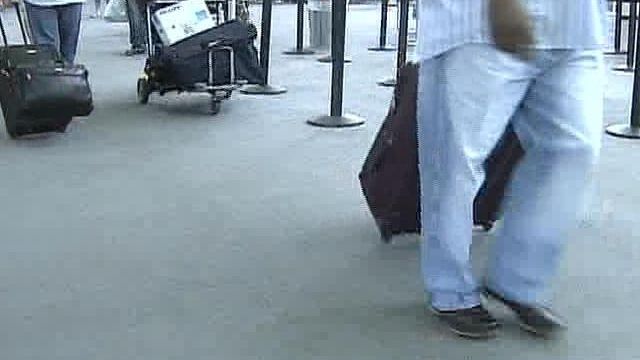Take Proper Precautions for Summer Travel
Summer vacations are a blast, but there are some things you need to know to prepare for your trip.
Posted — UpdatedA plane ride longer than four hours is the first potential health hazard. A closed cabin with re-circulated air is an ideal place for germs from tuberculosis or influenza to spread. Many people choose to bring along a surgical style mask to prevent breathing in airborne germs.
"There's not much you can do," Weber said. "When I travel, you like to have hand alcohol sanitizers," Weber said.
Another potential problem, particularly on flights longer than four hours, is deep vein thrombosis (DVT). Seated in one place for so long can lead to a blood clot forming in the back of the leg near the calf. It can break away, travel through the heart and into the lungs and possibly cause death.
Weber said staying well-hydrated is a way to avoid DVT.
"Keep in mind that that bottle of Coke may be perfectly sterile. It is, but if they put ice cubes in it, the bugs will be in the ice cubes," he said.
Weber said perhaps the biggest risk for injury in foreign countries is in motor vehicle accidents. Traffic laws are not always the same as they are in the United States, nor are rules strictly enforced everywhere. Roads are not marked as well in many lesser developed countries and in parts of Europe, people drive on the other side of the road.
Weber said people may plan to use public transportation, so plan those needs ahead of time. Also, since security is tighter in airports around the world, Weber said people with prescription medications make sure they bring them in clearly marked bottles or packages so there will not be any question about the drug.
• Credits
Copyright 2024 by Capitol Broadcasting Company. All rights reserved. This material may not be published, broadcast, rewritten or redistributed.





